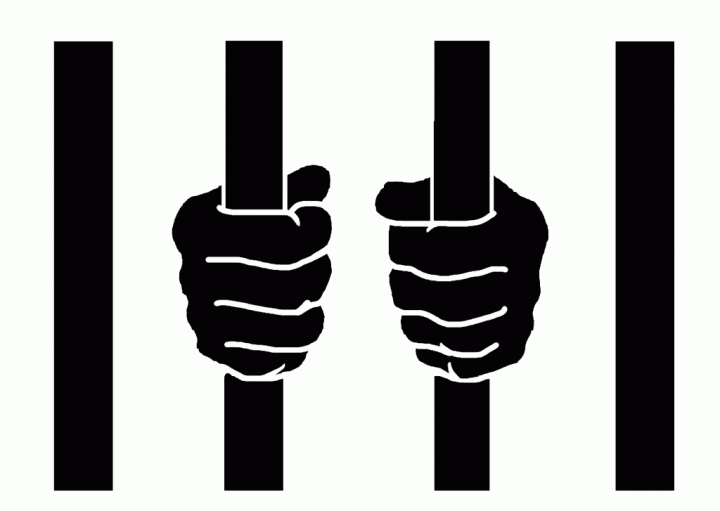By Abdus Sattar Ghazali
An Egyptian Kangaroo Court Wednesday (April 4) sentenced 35 alleged Muslim Brotherhood members to life in prison for allegedly forming “terrorist cells” to attack security forces and state institutions.
The Sohag Criminal Court sentenced another 155 defendants to three to 15 years on similar charges, including plotting to kill public figures and security officials, and joining an outlawed group, a reference to the Brotherhood which has been declared a terrorist group by the government of Field Marshal Abdel Fattah al-Sisi.
Tellingly, the new harsh sentences against the Muslim Brotherhood members came a day after the Egyptian government announced that Field Marshal Abdel Fattah el-Sisi has won re-election as Egypt’s president with 97 percent votes.
According to CNN, observers have widely called the vote a farce, seeing it more as a referendum on el-Sisi than a free and fair election.
US-client General Abdel Fattah el-Sisi, who later assumed the title of Field Marshall, toppled Mohammad Mursi of the Muslim Brotherhood in July 2013. Mursi was the first democratically elected President of Egypt.
An Egyptian Kangaroo court last month sentenced 10 people to death and five others to life in prison for allegedly forming a “terrorist group” to plot attacks on security forces and other institutions.
The state-run MENA news agency said the defendants are affiliated with the outlawed Muslim Brotherhood. MENA said three of the 15 defendants were sentenced in absentia.
Egypt has cracked down on anti-government elements since the overthrow in July 2013 of Mohammad Mursi.
Hundreds of anti-government people, including Muslim Brotherhood supporters and members, have received death sentences since 2013, and Egypt has carried out dozens of executions, according to security sources and rights groups.
According to Cornell Center on the Death Penalty Worldwide database, in recent years there has been a sharp increase in Egyptian courts’ use of capital punishment, with the number of death sentences jumping from 109 in 2013 to at least 509. Since the beginning of 2015, there have been reports of at least 354 death sentences.
The Cornell Center believes there are at least 1,700 people under sentence of death, but no official figures are available due to intense state secrecy surrounding capital punishment. Amnesty International indicates that at least 1,413 death sentences were issued between 2007 and 2014.
Interestingly, in January this year, an Egyptian kangaroo court handed 268 supporters of ousted President Mohamed Morsi up to 25-year jail terms over a violent pro-Morsi sit-in following his removal in July 2013.
Giza Criminal Court sentenced 23 defendants to 25 years in prison, 223 to 15 years and 22 to three years, ordering them to pay altogether a fine of more than $2.1 million for the damages they reportedly caused to the surrounding zoo, public park and college building during their 45-day sit-in.
Egyptian judicial system has become a joke
In January this year CNN quoted an Egyptian attorney as saying that Egypt is using death sentences to settle scores.
Human rights advocates say the alarming numbers recorded by the Egyptian Coordination for Rights & Freedoms and the Initiative for Personal Rights are shocking — but the stories behind them are even more harrowing, the CNN said adding:
What happened to four families from the northern city of Kafr el-Sheikh is a case in point. After more than a year of campaigning to have their loved ones’ death sentences commuted in a case clouded by allegations of flaws in Egypt’s judicial system, they received phone calls directing them to collect their relatives’ bodies early on January 2.
Tellingly, an Egyptian Kangaroo Court in February 2016 sentenced a four-year-old child to life imprisonment. The child, Ahmed Mansour Qurani Ali, was convicted on four counts of murder and eight counts of attempted murder. The Egyptian military admitted the mistake only after the story had already circled the globe.
European Parliament condemns
In February last, the European Parliament condemned Egypt for its use of the death penalty and called for all planned executions to be halted pending a review of the cases.
Egypt is restricting “fundamental democratic rights”, members of the European Parliament (MEPs) said in a statement on February 7, adding Cairo should abolish capital punishment.
“The European Parliament ” calls for the end to all acts of violence, incitement and hate speech, reminding the Egyptian government that the universal protection of human rights and long-term prosperity go hand in hand,” it said.
UN human rights experts have also expressed concern that Egyptian officials are using evidence obtained through torture or ill treatment, often during periods of enforced disappearance, to sentence prisoners to death in military courts.
Abdus Sattar Ghazali is the Chief Editor of the Journal of America (www.journalofamerica.net). He is the author of several books including Islam & Muslims in the 21st Century published in 2017.










